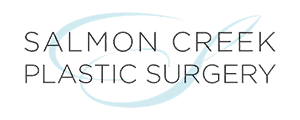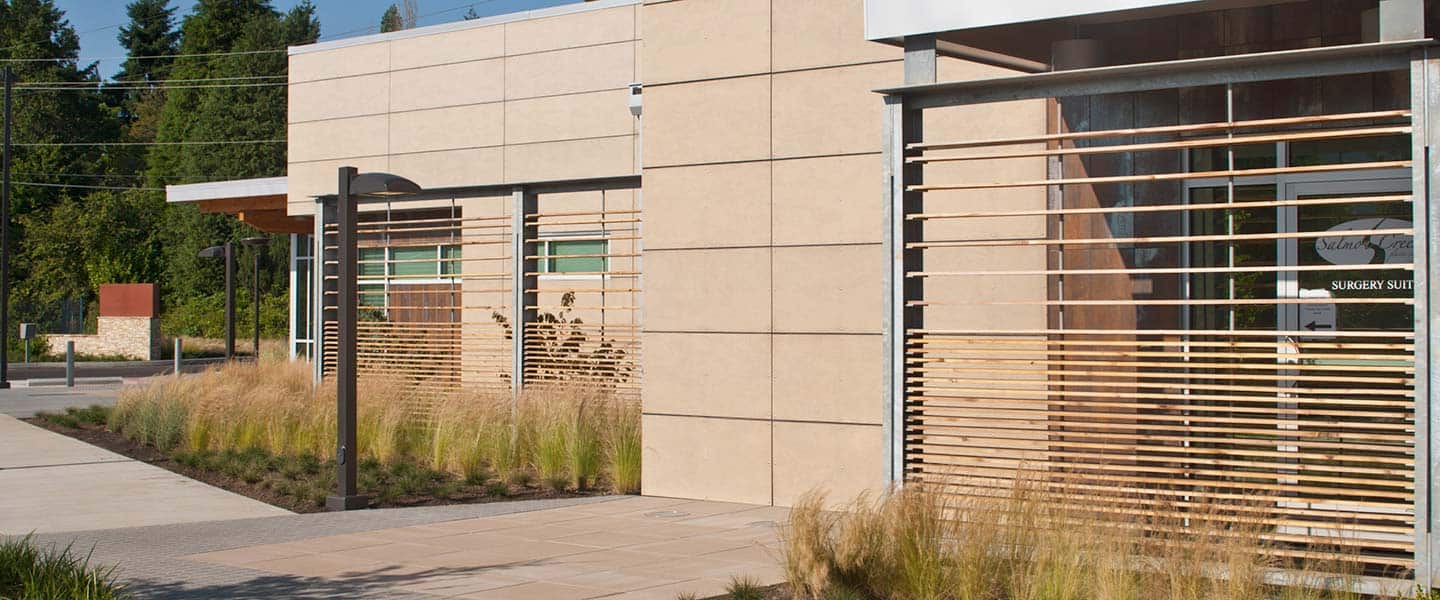At Salmon Creek Plastic Surgery we know that choosing a breast augmentation or enlargement is a highly personal decision. Our highly experienced and caring surgeons will help you make decisions that make sense for you. We use both saline breast and silicone breast implants, so you have choices in the changes you make to your appearance.
Our Vancouver, WA clinic features a discrete, state-of-the-art, on-site surgery center staffed by medical professionals. You won’t have to travel to a hospital or other generic surgery center for your procedure. You also will have a private room where you can recover from surgery.
What are the differences between silicone and saline breast implants?
Saline breast implants have a silicone shell filled saline (sterile salt water). Silicone implants have a silicone shell filled with a soft silicone gel designed to mimic the feel of fat tissue.
What are the advantages or disadvantages of using saline or silicone?
The main advantages of silicone implants is a more natural feel and lower chance of visible and palpable wrinkling. Disadvantages of silicone implants are greater expense, inability to adjust size, and a longer scar to avoid damaging the implant during placement. In saline implants, should the implant rupture or leak, the saline is safely absorbed by the body and poses no health hazard. If a silicone implant ruptures the gel may retain its shape and you may not notice unless you experience pain or a change in breast appearance. In either case you will want to schedule an appointment to have the implant replaced.
What size implant should I get?
Implant placement, type and size will be determined based on your breast anatomy, body type and desired increase in size, as well as your plastic surgeon’s judgment. Saline implants may be pre-filled prior to placement, or slowly filled at the time of surgery through a self-sealing valve. Silicone implants come in a variety of sizes. Implant manufacturers occasionally introduce new styles and types of implants; there may be many options available to you.
How is breast health affected by implants?
Breast implants have not been shown to impair breast health. Careful review of scientific research by independent grounds such as the National Academy of Sciences Institute of Medicine (IOM) has found no proven link between breast implants and auto-immune or other systemic diseases in women. Implants can, however, create subtle or more noticeable changes in the look and feel of your breasts. Capsular contracture, a condition that causes the naturally-forming scar tissue around a breast implant to contract, occurs in a variable percentage of patients and can make the breast feel firmer than normal. While this condition can be addressed surgically, correction is not always permanent.
How long do implants last?
You should be aware that breast implants are not guaranteed to last a lifetime and future surgery may be required to replace one or both implants. Pregnancy, weight loss and menopause may influence the appearance of augmented breasts over the course of a woman’s lifetime. Breast augmentation requires maintenance over time, including regular examinations for breast health and to evaluate the condition of your implants.
How are mammograms affected by implants?
Following the procedure, mammography is technically more difficult. Obtaining the best possible results requires specialized techniques and additional views. You must be candid about your implants when undergoing any diagnostic breast exam. A mammogram may be recommended prior to your procedure to ensure breast health and serve as a baseline for future comparison.
What is recovery like?
When you are recovering from a breast augmentation, you won’t feel like doing a lot for the first few days.
- Bathroom: You will need help into the bathroom, but not in the bathroom, for the first day.
- Sleeping: You will be able to sleep in your own bed, although sleeping on your back is preferred. Stomach sleepers may have difficulty sleeping comfortably for several weeks.
- Showering: In general, you will be able to shower one to two days after your surgery. You will want to stand with your back to the shower.
- Driving: You won’t be able to drive for the first week, or as long as it takes to be off of any narcotic pain medication.
- Exercise: You will be able to do low impact exercise in one week, such as walking or sitting on a stationary bike. You may resume higher-impact exercise such as jogging after four weeks and upper body weight lifting such as bench press after six weeks.
- Pain Control: Most patients need prescription pain medication for five to seven days after surgery. We encourage patients to take ibuprofen or Aleve regularly and their prescription pain medication as needed.
Additional Information
Before & After Galleries
Other Breast Procedures
Ready to Talk?
Call Us At (360) 823-0860 Or Click The Button Below To Request a Consultation.

